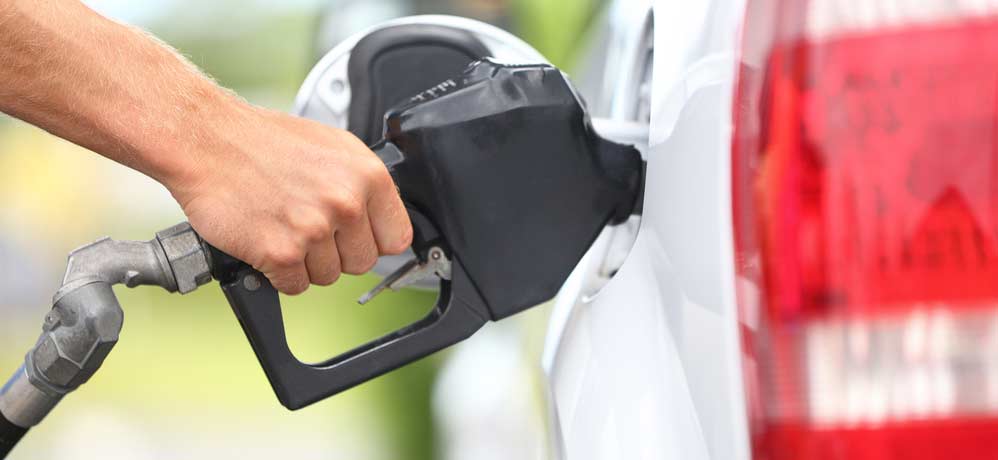
- The Savvy Promise
At Savvy, our mission is to empower you to make informed financial choices. While we maintain stringent editorial standards, this article may include mentions of products offered by our partners. Here’s how we generate income.
In this article
Stamp duty is a crucial part of purchasing a car in Australia, but did you know there are certain situations where you may not have to pay it? You can learn about the various stamp duty exemptions and concessions that exist in the state or territory you live right here in Savvy’s comprehensive guide.
What is car stamp duty?
Car stamp duty in Australia is a tax imposed by state and territory governments on the transfer of ownership or registration of motor vehicles. The amount of stamp duty varies based on factors such as the value of the vehicle, type of vehicle and the state or territory where the transfer occurs. It is usually payable by the buyer and is calculated as a percentage of the vehicle's market value or purchase price.
Stamp duty is an important source of revenue for state governments and is used to fund various public services and infrastructure projects. Exemptions and concessions are often available for specific situations, which are important to know about if you’re purchasing your next vehicle.
How do I avoid paying stamp duty on a car or receive a concession?
The only real way to avoid paying stamp duty is to receive a government exemption. Stamp duty exemptions and concessions differ between states and territories, with each region offering a range of exemptions including the following:
- Eligible new or used electric vehicles and HEVs and PHEVs with less than 130g/km of CO2 in tailpipe emissions
- Eligible veteran, vintage or historic vehicle models
- Vehicles acquired and used by eligible disabled individuals
- Vehicles acquired and used by hospitals and schools
- Vehicles to be used for stock by licensed dealerships
- Vehicles transferred under certain court orders
- Vehicles transferred under Domestic Relationships Act 1994, s 33 (1) (d)
- Vehicles transferred under Family Law Act 1975 (Cwlth), pt VIIIAB financial agreements
- Vehicles transferred under Family Law Act 1975 (Cwlth), s 90B, s 90C or s 90D financial agreements
- Vehicles transferred via a deceased estate
- Vehicles that have been repossessed
- Caravans
- Eligible new and used electric vehicles with a gross vehicle mass under 4.5 tonnes, a dutiable value of up to $78,000, and first registered on or after 1 September 2021
- Vehicles being transferred to NSW registration from the Federal Interstate Registration Scheme (FIRS)
- Vehicles bought by eligible veterans
- Vehicles granted through divorce settlement or separation of a de facto or domestic partnership (for which a transfer fee exemption also applies)
- Vehicles inherited through a will
- Vehicles specifically used for transporting sick, injured or disabled individuals (unladen weight of 250kg or less) or mine rescue work
- Vehicles with duty already paid for by you and/or registered under your name in another state or territory
- Experimental or research vehicles lacking a clear market value
- Plug-in electric vehicles up to $50,000
- Trailers and caravans weighing 4.5 tonnes or less
- Vehicles acquired as part of a deceased estate
- Vehicles acquired by a charity or not-for-profit organisation and used primarily for charitable purposes
- Vehicles acquired by individuals receiving a Veteran's pension
- Vehicles designed for agricultural use
- Vehicles for use by an educational institution, public hospital or organisation operating primarily to promote the interests of a school (aside from a school which provides profit for an individual
- Vehicles gifted between family members
- Vehicles previously registered in another state or territory in the same name
- Vehicles registered as an enthusiast vehicle
- Vehicles transferred as part of a relationship breakdown
- Vehicles used by a religious institution
- Individuals who have lost the use of either leg
- Vehicles inherited from a deceased estate
- Vehicles involved in a matrimonial issue
- Vehicles purchased by a licensed vehicle dealer
- Vehicles purchased by businesses engaged in a minor restructure
- Vehicles purchased by ex-service members
- Vehicles registered in Queensland or another state
- Vehicles registered under a business name
- Vehicles used for charity purposes
- Vehicles used for primary production
- Vehicles gifted to a family member
- Buses and trailers (as per the Motor Vehicles Act 1959)
- Conditionally registered motor or farming vehicles
- Ex-service personnel who are incapacitated
- Individuals who are incapacitated
- Licensed motor vehicle dealers, with the condition that the vehicle is part of their trading stock
- Local council motor vehicles
- Transfers between current or former spouses or domestic partners
- Vehicles distributed in a deceased person's estate via a will or intestacy
- Vehicles eligible for fee-free registration as approved by the Registrar of Motor Vehicles
- Vehicles held on behalf of the Crown
- Vehicles repossessed through a hire-purchase agreement
- Vehicles with stamp duty paid for in another state or territory by the same registered entity or as part of another instrument (such as the sale of a business)
- Eligible new or used electric vehicles registered between 1 July 2021 and 20 June 2023
- Vehicles purchased by individuals holding an eligible DVA Veteran Card
- Vehicles purchased by individuals who are members of the Transport Access Scheme
- Vehicles transferred between individuals involved in the breakdown of a de facto or personal relationship or a dissolved or annulled marriage
- Vehicles transferred to a beneficiary as part of a deceased estate
- Vehicles transferred to a shareholder of a company upon its cessation or deregistration (in some cases)
- For vehicles purchased on behalf of a minor and registered in the name of a trustee or nominee, an exemption on their transfer into the name of the former minor once they become an adult
- Green cars, as defined by the Australian Government’s Green Vehicle Guide
- Vehicles acquired due to a change in business structure, amalgamation or repossession
- Vehicles designed for the transport of disabled, handicapped, incapacitated or injured individuals and/or wheelchairs
- Vehicles for primary production, firefighting, emergency response, mobile plant and special purposes
- Vehicles previously registered in the same name in another state
- Vehicles purchased by licensed motor vehicle dealers
- Vehicles purchased for consular usage and purposes
- Vehicles received as a beneficiary following the passing of the previous owner
- Vehicles received due to marital status changes or relationship breakdowns
- Vehicles transferred to trustees due to retirement, appointment of another trustee or another change
- Vehicles transferred between de facto partners or spouses
- Vehicles transferred due to a corporate restructure
- Vehicles loaned for philanthropic purposes, school driver training or charitable purposes to a charity organisation
- Select caravans
- Vehicles returned to be replaced or to receive a refund
- Vehicles previously registered in the same name interstate and/or duty has been paid without a change of ownership
- Vehicles purchased for business purposes by a licensed dealer
Note: all exemptions are subject to state or territory government approval and the relevant laws in place in each state or territory. Terms and conditions apply to each of these exemptions.
Information is correct as of 9 April 2024. Check your state or territory government’s website to find out more about stamp duty concessions and exemptions:
How much stamp duty will I pay?
If you are required to pay stamp duty on your car in Australia, rates vary depending on several factors, including:
- State or territory: each state and territory has its own stamp duty regime with varying rates and exemptions.
- Car purchase price: the stamp duty amount is typically a percentage of the car's purchase price.
- Type of vehicle: in some cases, the type of vehicle you're buying can influence the stamp duty amount.
- Concessions: concessions will reduce the amount of stamp duty you are required to pay.
An easy way to calculate how much stamp duty you will pay is to use an online calculator. You can find online stamp duty calculators for each Australian state or territory below:
Did you find this page helpful?
Author
Savvy Editorial TeamPublished on August 14th, 2023
Last updated on April 22nd, 2024
Fact checked
This guide provides general information and does not consider your individual needs, finances or objectives. We do not make any recommendation or suggestion about which product is best for you based on your specific situation and we do not compare all companies in the market, or all products offered by all companies. It’s always important to consider whether professional financial, legal or taxation advice is appropriate for you before choosing or purchasing a financial product.
The content on our website is produced by experts in the field of finance and reviewed as part of our editorial guidelines. We endeavour to keep all information across our site updated with accurate information.
Approval for car loans is always subject to our lender’s terms, conditions and qualification criteria. Lenders will undertake a credit check in line with responsible lending obligations to help determine whether you’re in a position to take on the loan you’re applying for.
The interest rate, comparison rate, fees and monthly repayments will depend on factors specific to your profile, such as your financial situation, as well others, such as the loan’s size and your chosen repayment term. Costs such as broker fees, redraw fees or early repayment fees, and cost savings such as fee waivers, aren’t included in the comparison rate but may influence the cost of the loan. Different terms, fees or other loan amounts may result in a different comparison rate.










